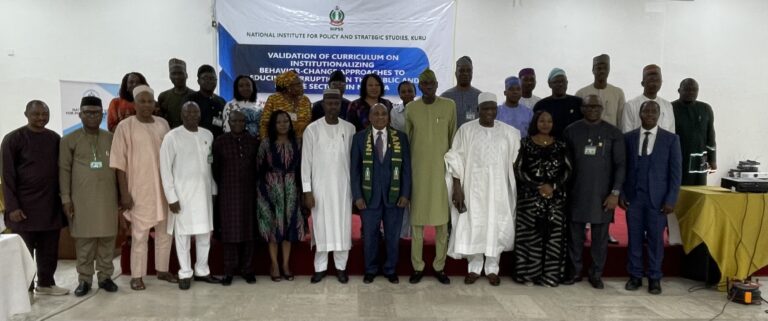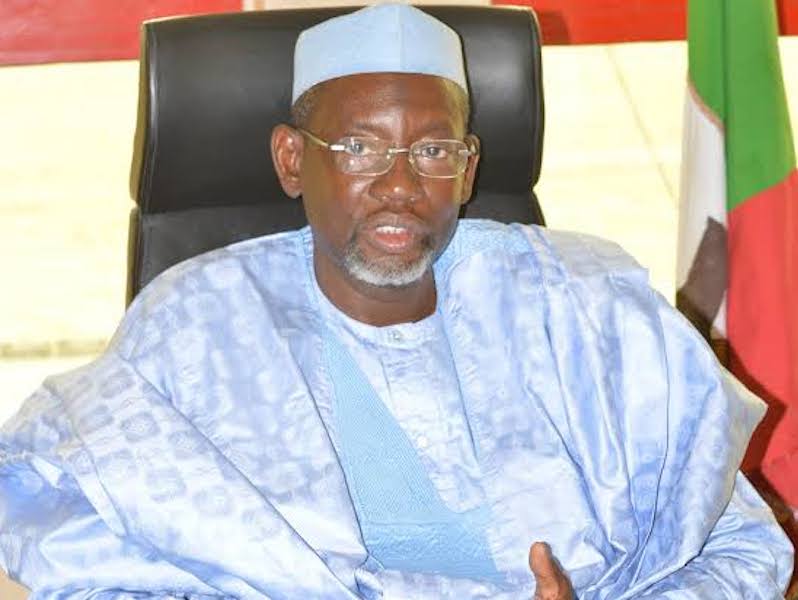
By EricJames Ochigbo
The National Institute for Policy and Strategic Studies (NIPSS) has introduced a curriculum on “Institutionalising Behavior-Change Approaches to Reducing Corruption in Public and Private Sectors.”
The Director-General of the institute, Prof. Ayo Omotayo, at a validation session on Thursday in Abuja, said that the aim was to support government’s efforts in curbing corruption.
Omotayo said that the institute, as Nigeria’s apex think tank served as a high-level centre of reflection, research and dialogue.
The director-general said that a change of approach became inevitable after many try of a particular process that is not yielding the required result.
He said that the easiest way to change the attitude of a society was through education hence, the need for the curriculum.
“It is in this regard, that the institute, deeply concerned by the pervasive nature of corruption in Nigeria, has been engaged in various policy advocacy for zero-tolerance to corruption.
“In recognition of its commitment to proffering useable solutions to addressing the challenge of corruption that affects national development, the Institute received a grant from the John D. and Catherine T. MacArthur Foundation in 2022 under the On Nigeria Anti-Corruption Programme.
“The grant is to implement a project titled Institutionalizing Behavior-Change Approaches to Reducing Corruption in the Public and Private Sectors in Nigeria.
“The goals of this noble project are to contribute to effective campaigns to reduce corruption in public and private sectors in Nigeria through behaviour-change approaches.
“To integrate the behaviour-change approaches into the various curricula of training programmes in the national institute,” he said.
Presenting the curriculum, Prof. Plangsat Dayil of the University of Jos, said that the curriculum has seven modules.
She said they included Theories and Practices for Behavior Change Initiatives in Nigeria, Social Norms Approach to Reducing Corruption in the Public and Private Sectors in Nigeria.
“Other are Behavioral Approaches to Reducing Corruption in the Public and Private Sectors in Nigeria, Elements and core values for Anti-Corruption and Gender, Behavioral Change and Corruption in Nigeria.”
Dayil said that corruption is a behaviour that rests on the formal and informal structure of social relations, values, attitudes, and norms in a society.
The professor said that the practices and norms that may influence participation in corruption are also shaped by material conditions.
She said essential social values and norms emerge from interactions between individuals, groups, and socio-economic/power structures saying that the curriculum encourages such interactions.
The National Chairman, Inter-Party Advisory Council (IPAC), Mr Yabagi Yusuf, said that all the modules in the curriculum are relevant to political parties.
He said that corruption undermines rule of law, peace and institutions saying that it might be fought in all ramifications.
The chairman commended NIPSS for developing the curriculum saying that it is vital to having a society free of corruption.
Also, the President of Alumni Association of the National Institute (AANI) Amb. Emmanuel Obi also commended NIPSS for the initiative.
He pledged the continued support of the association for the institute to build the capacity of agencies of government. (NAN)


